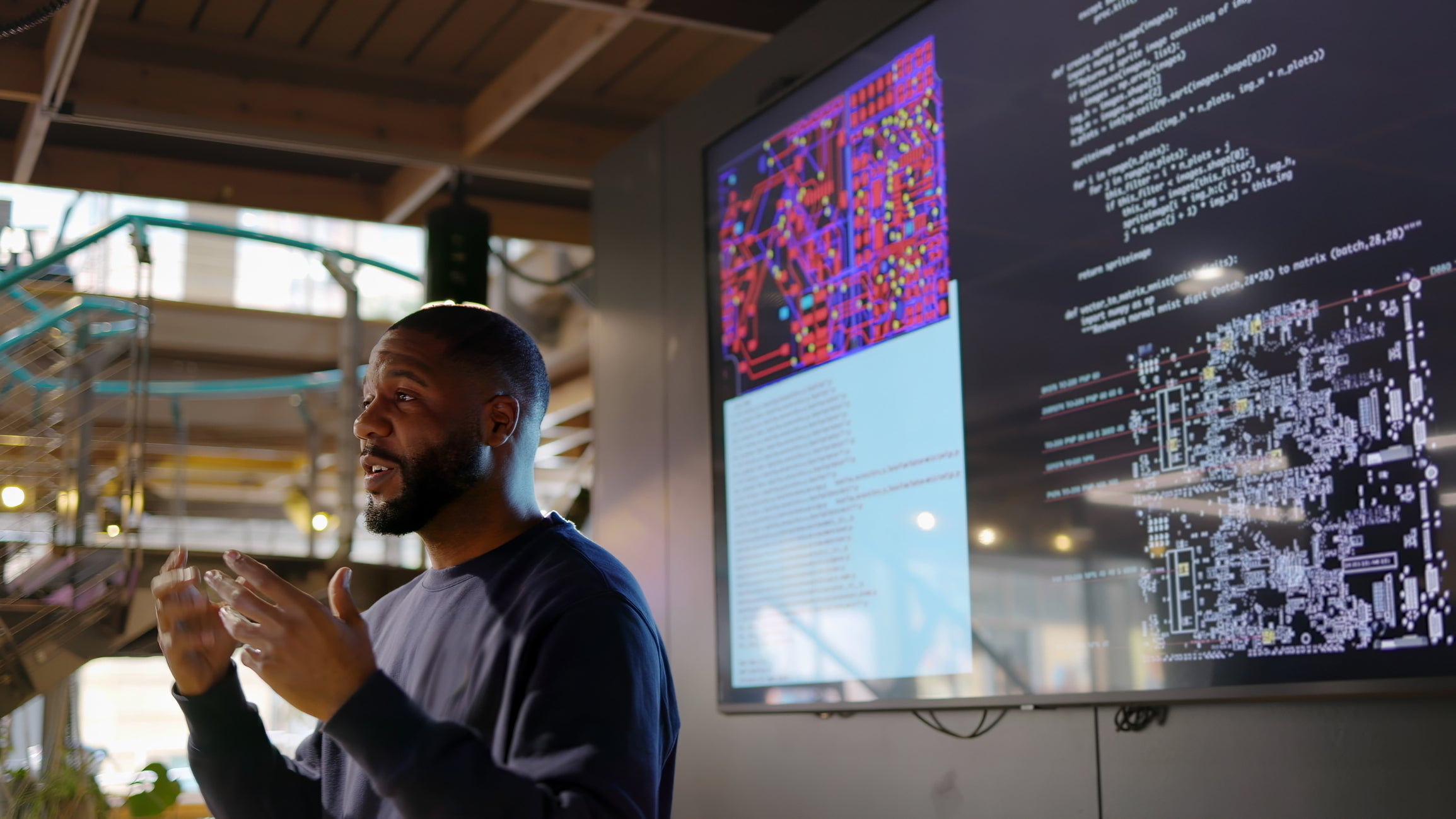From ChatGPT to Gemini, artificial intelligence (AI) is increasingly prevalent, impacting multiple industries. And it’s only going to become more common. According to Grand View Research, the artificial intelligence market size was estimated at about $196 billion in 2023; and it’s expected to grow at a compound annual growth rate of 36% between 2024 and 2030.
AI jobs can provide higher-than-average salaries and career potential. If you’re wondering how to get into AI, these are a few of the top careers and their education requirements.
Top AI Jobs
Nationally, the average salary for all occupations was $65,470 in 2023. However, AI is a growing field, and workers with AI skills can command higher-than-average salaries. Some of the top AI jobs have incomes well into the six figures:
AI Data Analyst
An AI data analyst combines traditional data analysis skills with AI. They use advanced algorithms to identify patterns and trends. This role is essential for marketing, customer relations, and logistics. The average salary for this position is $100,058, approximately 53% higher than the national average.
To become an AI data analyst, you’ll need a bachelor’s degree at a minimum. Some employers will require a master’s degree or higher for senior roles, and you’ll likely need to take ongoing courses to ensure you know the latest technology.
AI Research Engineer
An AI research engineer researches, develops, and tests new AI technologies and algorithms to help businesses streamline their operations and automate their systems. The role involves a great deal of experimentation to address problems and tweak programs.
To succeed as an AI research engineer, you’ll need a bachelor’s degree in computer science, engineering, or a related field.
It’s a position that’s high in demand: the average salary is $106,386, approximately 63% higher than the national average for all occupations.
AI Software Developer
An AI software developer uses programming languages to create software and web applications. A developer writes code, tests it, and implements it. Specializing in AI, you may create AI applications that generate content, answer customer service questions, or develop images.
A bachelor’s degree in computer science, programming, or software development will help you achieve your dream AI developer role.
The average salary for AI software developers was $111,845 as of 2024, about 70% higher than the national average.
How to Get Into AI
If you’re wondering how to get a job in AI, you’ll need a strong background in computer science, mathematics or engineering. There are several ways to gain the education and skills you’ll need for the best AI jobs:
Pursue a Degree
Most careers in AI require a minimum of a bachelor’s degree. If you’re researching how to get a degree in artificial intelligence, you should know that few schools offer AI-specific college majors just yet; however, you can gain the necessary skills by pursuing a degree in broader fields like computer science, statistics, and engineering. These majors will give you a solid foundation to build on, with many applications to AI technology.
Learn Other Skills
To get a job in AI, you’ll need to understand machine learning and programming languages like Python, Java, and SQL. Learning how to use data analysis and visualization tools like Tableau or Power BI is also helpful. You can learn these programs through coding bootcamps, online courses on Udemy or Coursera or through courses offered by your local community college.
Enroll in a Certification Program
The AI field is rapidly changing, so staying on top of the latest trends and technologies is critical.
Regardless of your college major, you can improve your career prospects by completing an AI certification program, such as the Artificial Intelligence Professional program offered by Stanford University or the Certified Generative AI Expert program available through the Blockchain Council.
These programs vary in cost and duration, but they can give you an in-depth understanding of generative AI programs, data privacy, and upcoming AI trends.
Apply for Internships
As you work toward a degree, you can gain valuable work experience and hands-on knowledge of AI programs by taking on internships. Companies of all sizes have internship programs in artificial intelligence; some of the top internship programs include the Allen Institute for AI, Apple’s Machine Learning Research, and the Vector Institute.
Completing an internship will enhance your resume, help you build your professional network, and build a portfolio you can use to showcase your work.
You can keep an eye out for internship opportunities through Handshake and Indeed, both of which can send you notifications according to your preferences.
Preparing for Your Career
With the increasing demand for AI professionals and the high earning potential in certain roles, now is a good time to pursue a career in AI. By earning a degree, continuing your education with courses and certification programs and applying for technology internships, you can position yourself for success after graduation.
If you need help financing your education, a private student loan from ELFI could be a solution. You can borrow up to 100% of the school-certified cost of attendance for undergraduate and graduate degrees, and you can get a rate quote online.



